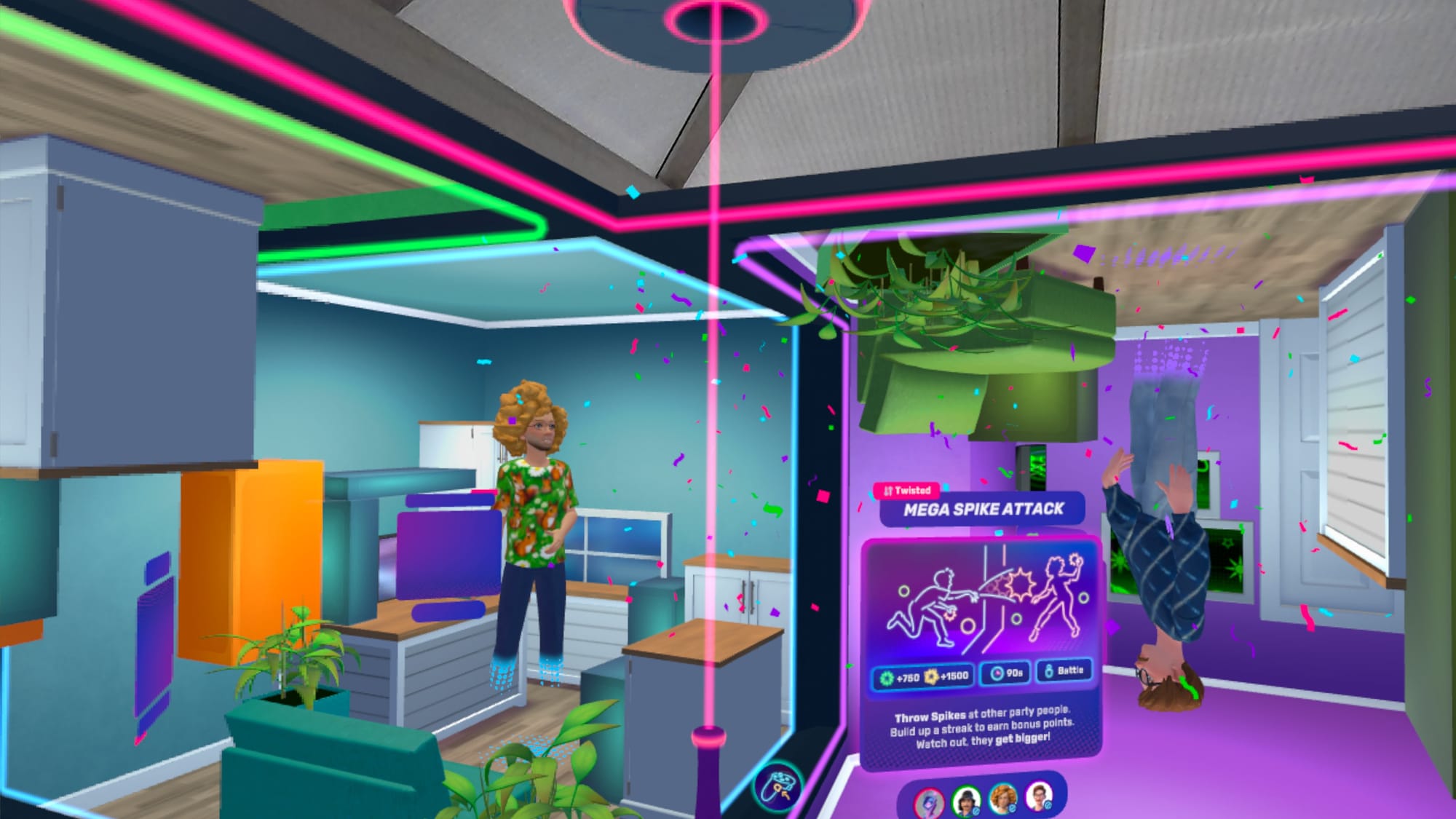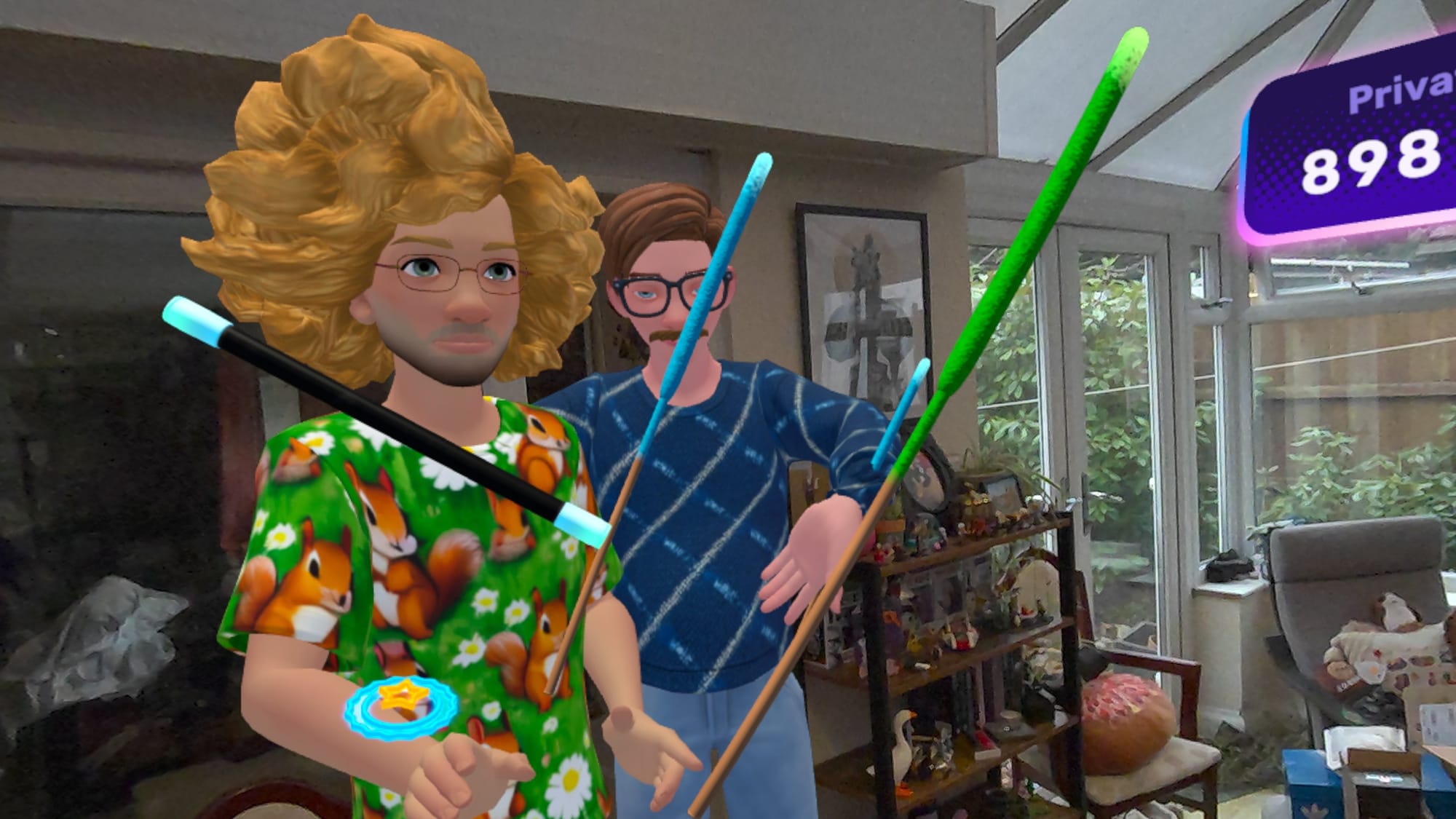Party Versus is a new mixed reality social party game from Schell Games, and it’s out now on Quest 3. Here’s our full impressions.
Developed by Schell Games (Among Us VR, I Expect You To Die), Party Versus is the multi-location mixed reality title previously teased before the launch of the studio’s recent Apple Vision Pro exclusive, Puzzle Sculpt. Using a shared space that supports two to four players, this lets you hang out at the Party Lounge or play one of 16 different minigames together.
I recently went hands-on before today’s launch on Quest 3, playing for roughly 40 minutes with three developers from Schell Games. The studio recommends a 2m × 2m play space, and the setup process involves choosing a room corner that displays other players during minigames. Spawning sparklers, wands, and glow sticks from a button on your hand gives the Party Lounge some subtle but appreciated social flavor.
Party Versus features two gameplay modes: Quick Party lets you select individual minigames that are either free-for-all games or involve teaming up. Each features a ‘Twisted’ variety that keeps this interesting with varied effects like another player’s room being turned “upside down.” Party Playoffs takes the longer approach, where you compete for a Party Crown over six minigames.
There’s a few highlights so far. Hot Potato plays similarly to the real-life game, and whoever threw the potato last into someone else’s room before it explodes earns more points. Spike Attack presents a dodgeball-style game where the balls spawn across your room, while Pop Pals requires popping balloons in a numbered order. I enjoyed Pop Pals’ creative team-based variant where only your partner can see what number is on your room’s balloons, so you have to communicate.


Screenshots taken by UploadVR on Quest 3
The minigames I’ve tried are mostly straightforward, and what’s particularly good is how Party Versus uses your room. For example, thrown objects like the hot potato can be hidden behind scanned furniture, which adds some much-needed depth since you can get tactical in aiming. Similarly, you can use the furniture as cover while avoiding balls in Spike Attack.
The game makes good use of multi-location mixed reality, one that I’ve only really tried directly before with PvPvE shooter Last Stand. Also in MR Chess, to a lesser extent. Seeing the full-body avatars of the developers in my living room was surprisingly good, they integrated with my play space well.
One concern is an issue I realize might be tricky to solve, and that’s accounting for player room size differences. It was noted during my session that two of the developers were in smaller rooms, while I (thankfully) have a more spacious living room. This means objectives are spread out across a wider space for one player over another, which could make some minigames unbalanced.
Screenshots provided by Oculus Publishing
From a technical perspective, Schell Games has brought this together well. I enjoyed the competitive nature of the actual game, but Party Versus is a sum of its parts. The old problem with minigame collections is that they aren’t particularly deep, and this isn’t an exception. What ties this together is the social aspect boosted by that sense of presence. As such, I can see this being a good introductory experience for MR newcomers on Quest.
Overall, it’s been an enjoyable experience and Party Versus makes entertaining use of mixed reality for multiplayer. While the minigames are entertaining if a little simplistic, it’s a fun showcase for social mixed reality. I haven’t gone through everything yet, so a full review wouldn’t be appropriate, but it’s a good start.
Party Versus launches today exclusively for the Meta Quest 3 family for $9.99, and it’s also available for Meta Quest+ subscribers.